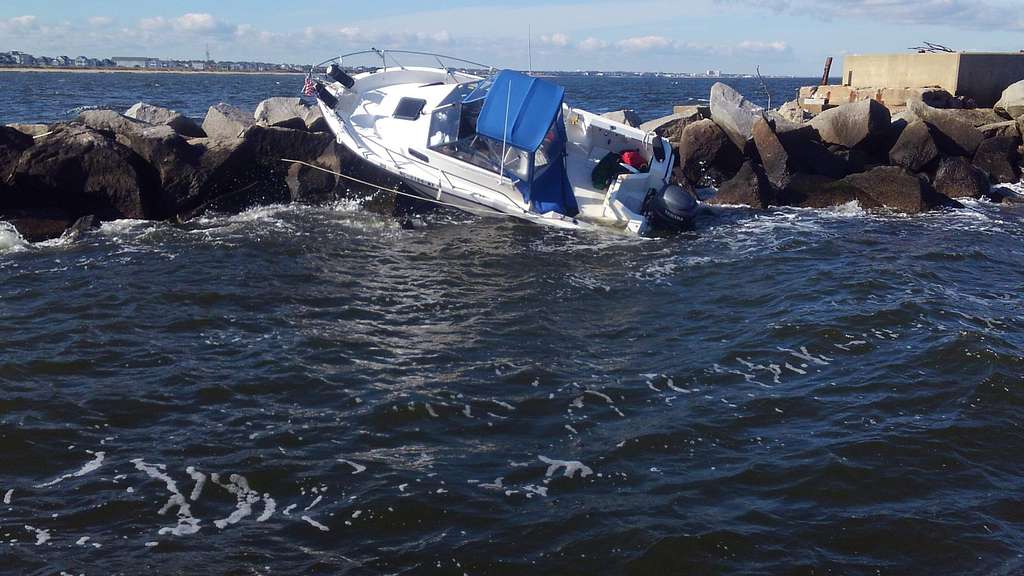2. Term Life Insurance

Term life insurance is designed to replace income if you die prematurely. But in retirement, you’re not bringing in a paycheck, so there’s no income to replace. If your kids are financially independent and your mortgage is paid off, the policy’s purpose has essentially expired. Continuing to pay premiums on a policy that no longer serves a purpose is like subscribing to a gym you never visit.
According to Greenbush Financial Planning, many retirees find that their term life insurance is no longer necessary once they’ve achieved financial independence. Canceling it can free up funds for travel, hobbies, or simply bolstering your retirement savings. However, if you have dependents or significant debts, consult a financial advisor before making changes. The truth is, most term policies expire without ever paying out—which is good news in theory, but not great ROI. The premiums might seem small, but over decades, that adds up to serious cash. Many seniors continue paying out of habit, not strategy. And in retirement, every dollar needs a job—so fire the ones doing nothing.
3. Mortgage Life Insurance

Mortgage life insurance pays off your mortgage if you die. But if your mortgage is already paid off—or close to it—this policy becomes redundant. It’s like paying for a car wash when you don’t own a car. It’s a classic case of insurance doing more for peace of mind than practical benefit. Instead of funneling money into a policy that protects a debt you no longer have, consider redirecting those funds into investments or savings that can benefit you during retirement.
If you’re still carrying a mortgage, evaluate whether a traditional life insurance policy might offer more flexible coverage. You’re not just overpaying—you might be missing out on better financial tools. Per Investopia, mortgage life insurance is often sold with aggressive marketing, but rarely reviewed after purchase. It’s not underwritten like term life, so premiums stay high regardless of your health. If your house is nearly yours outright, your insurance shouldn’t still be crashing on your couch. Time to tell it to move out.
4. Private Mortgage Insurance (PMI)

PMI is typically required when you purchase a home with a down payment of less than 20%. It’s designed to protect the lender, not you. Once you’ve built sufficient equity in your home, continuing to pay for PMI is like buying insurance for someone else’s car. That’s not just uncool—it’s financially backwards.
Review your mortgage statements and consult with your lender to determine if you’re eligible to cancel PMI. Eliminating this expense can free up additional funds for your retirement lifestyle, whether that’s traveling, pursuing hobbies, or simply enjoying peace of mind. You’ve earned every penny—don’t let them leak out of your wallet in invisible drips. Lemonade Homeowners advises homeowners to request cancellation once their loan-to-value ratio drops below 80%. A surprising number of people don’t realize they qualify, and lenders are rarely in a rush to bring it up. Check your home value, do the math, and ditch PMI like the financial third wheel it is.
5. Credit Life Insurance

Credit life insurance pays off a specific debt if you die. While this might seem helpful, it’s often more expensive and less flexible than other options. If you’ve paid off the associated debt, the policy serves no purpose. And even if you haven’t, there might be smarter ways to cover that liability.
Instead of maintaining credit life insurance, consider whether a traditional life insurance policy or building an emergency fund would better serve your needs. These alternatives can offer more comprehensive financial protection and flexibility during retirement. You want your money doing backflips—not just sitting on the sidelines guarding one tiny loan. According to BankRate, credit life insurance tends to be automatically offered during loans, often without clearly stating that you can decline it. These policies are lender-friendly, not retiree-friendly. Most folks don’t even remember they signed up for one. Time to review those statements and kick any clingy policies to the curb.
6. Children’s Life Insurance

We love our kids—but insuring them after retirement? Not the move. These policies are usually marketed as a way to “lock in” low rates early, but once your child becomes an independent adult, the need basically disappears. Unless you have a child with a chronic illness or financial dependency, this is just sentimental overspending. Plus, most of these policies build up barely-there cash value, so you’re not even winning on the investment side.
Retirement is the time to shift focus back to you—your health, your savings, your travel bucket list. If your adult child needs life insurance, they can get their own (probably cheaper and better) policy. You don’t need to keep picking up that tab from the 1990s. Canceling this one won’t make you a bad parent; it’ll make you a smarter retiree. If it’s emotionally hard to cut, reframe it: you’re trusting them to stand on their own two feet. And that’s a pretty good legacy.
7. Identity Theft Insurance

Yes, identity theft is a thing. No, you don’t need a standalone insurance policy for it. A lot of people think they need this after those dramatic commercials with hackers in dark rooms, but many credit cards and banks already offer fraud protection—for free. Plus, your homeowner’s or renter’s policy might already include identity theft coverage as a rider.
Standalone policies often charge monthly fees for services you can DIY with a little digital hygiene. Think strong passwords, two-factor authentication, and freezing your credit when needed. Paying for identity theft insurance in retirement is like hiring someone to lock your doors when you already have a security system. It might feel proactive, but it’s often redundant. Save your money, and spend it on something more joyful—like booking that wine tour in Sonoma.
8. Travel Medical Insurance (If You’re Staying Local)

If you’re not planning to become a globetrotting retiree anytime soon, travel medical insurance probably doesn’t belong in your wallet. These policies are super helpful for those traveling abroad, especially to places where your domestic health coverage doesn’t reach. But if your idea of an adventure these days is the Costco sample aisle or a weekend cabin trip, you’re not exactly scaling Kilimanjaro.
Unless you’ve got international flights booked, this policy is just sitting there collecting dust. And many retirees don’t realize that some credit cards already include emergency medical coverage for trips. Medicare doesn’t typically cover overseas medical expenses, but if you’re not leaving the country, that doesn’t really matter. Keep an eye on your plans—don’t pay for “what ifs” when you’re living in the “right now.” It’s like paying for scuba gear when you’re only dipping your toes in the pool.
9. Extended Warranties on Electronics

Look, we get it—nobody wants their brand-new iPad dying two days after the standard warranty ends. But extended warranties are notoriously bad deals. They’re often full of exclusions, hard-to-claim clauses, and expiration dates that don’t align with the actual product lifespan. Most electronics either break quickly (in which case, it’s covered under the manufacturer’s warranty) or last long enough that you forget you even bought coverage.
In retirement, cash flow matters. Do you really want to spend $150 insuring a $400 appliance? Especially when that money could be buying steaks, not stress? Instead, keep a small emergency tech fund for replacements, and skip the upcharges at checkout. You’re not fragile—your budget shouldn’t be either. And remember: if the product needs that much backup, maybe it’s not worth buying in the first place.
10. Pet Life Insurance

You love your furry companion—we know. But pet life insurance? That’s a bit much. It’s often confused with pet health insurance (which can be legit), but pet life insurance pays out when your pet dies, not when they get sick. Unless your dog is a prize-winning show dog or makes money on TikTok, the payout probably isn’t worth the monthly premiums.
You’re not protecting an income stream here—you’re cushioning grief with a check. Most policies have more fine print than actual benefits, and payouts are rarely enough to make a financial difference. Pet insurance for vet bills? Sure. Pet insurance to help you mourn? That’s what cuddles, tissues, and chocolate are for. Give yourself permission to feel the feels—and skip the policy.
11. Collision Insurance on a Paid-Off Old Car

If your car’s older than your favorite pair of sweatpants and fully paid off, it’s probably time to drop the collision coverage. Collision insurance is designed to pay for repairs to your vehicle after an accident, but if your car’s current value is low, the payout might not even cover the deductible. Translation: you’re paying to fix something that’s not worth fixing.
Instead of shelling out hundreds in premiums, start a car repair fund. That way, if something happens, you’re not caught off guard—but you’re also not paying forever for theoretical dents and dings. Retirement is all about balance: comfort and practicality. If the insurance is worth more than the car, you’re officially being hustled. Cancel it and give your car the low-maintenance love it deserves.
12. Cancer or Critical Illness Insurance

These policies sound serious—and they are—but they’re also often overpriced and underperforming. Cancer insurance only pays for very specific diagnoses, often with major exceptions and limits. If you already have Medicare (and maybe a supplement), you’re covered for most of the treatment costs anyway. Why double up?
Plus, critical illness policies sometimes offer lump sums, but only if you survive and jump through hoops. For many retirees, the smarter play is building up your emergency savings or focusing on comprehensive medical coverage. These “just in case” policies prey on fear and can quietly drain your budget. No shame if you bought one before—just don’t keep paying for it now. You’ve earned peace of mind, not financial stress dressed up as protection.
13. Flight Insurance

We’ve all had the travel booking screen pop up with “Add flight insurance for $12.99?” and the panic sets in. What if your trip gets canceled? What if the airline loses your bags? But honestly, most airlines already have solid refund policies, and if you booked with a credit card, you probably already have built-in trip protection.
Flight insurance is like paying for a backup parachute on a plane that’s not even leaving the ground. It’s rarely used, and claims can be tedious and limited. In retirement, don’t let fear lead your wallet. If you do a lot of international travel, get full travel insurance that covers medical, trip interruption, and lost baggage. But if you’re flying domestic with Southwest and a carry-on, you’re good. Save that $12.99 for an airport pretzel instead.
14. Job Loss Insurance

Let’s wrap with the most ironic one of all: job loss insurance. This policy is designed to cover your expenses if you lose your job… but you’re retired. You’ve already quit! So unless you’re moonlighting as a DJ or lifeguard (respect), there’s no job to insure.
Some people accidentally keep this coverage after leaving work, especially if it was bundled into credit card protection or auto loan payments. It just sits there, eating money every month, doing absolutely nothing. Retirement is not the time to bankroll ghost policies. Do a quick scan of any leftover policies from your working years. If “employment” is a requirement, that one’s gotta go. Cancel it, toast your freedom, and never look back.
This article is for informational purposes only and should not be construed as financial advice. Consult a financial professional before making investment or other financial decisions. The author and publisher make no warranties of any kind.









